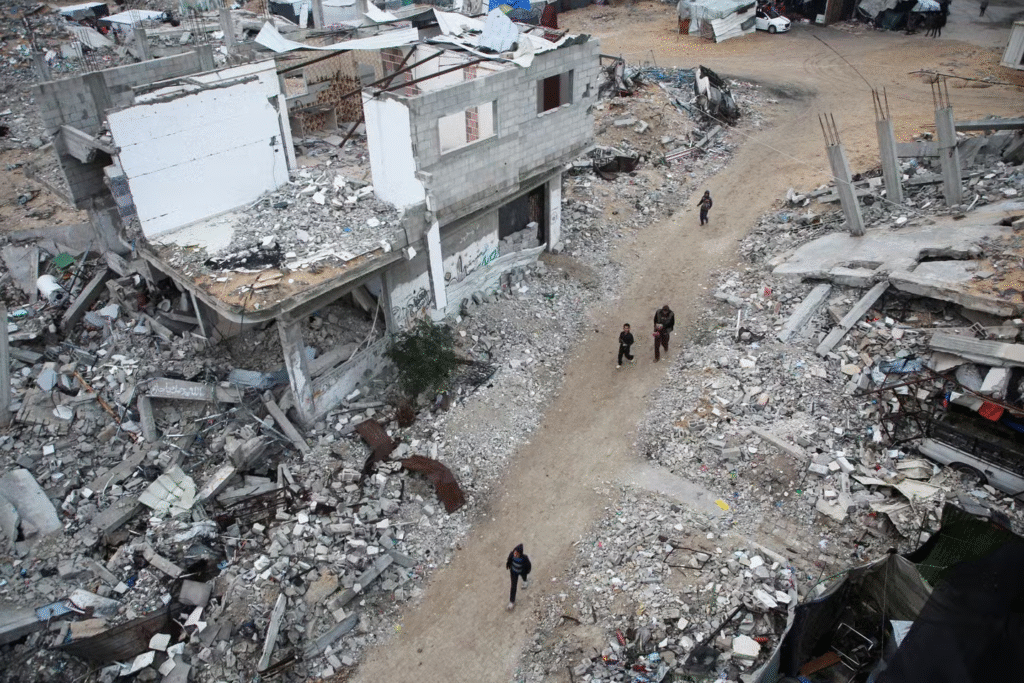The Conditional Promise: Hamas and the Reconstruction of Gaza
The protracted conflict between Israel and Hamas has left the Gaza Strip in a state of near-constant devastation, with years of military operations and a prolonged blockade crippling infrastructure and creating a profound humanitarian crisis. Amidst this destruction, the prospect of reconstruction offers a crucial glimmer of hope for the residents of Gaza. Hamas, the de facto governing authority, has expressed its willingness to cooperate with rebuilding initiatives, but this cooperation is contingent upon a fundamental condition: the upholding of Palestinian rights. This proviso highlights the intricate political landscape that is inseparable from the practical challenges of reconstruction, underscoring the deep-seated grievances and aspirations that continue to fuel the enduring conflict.

Hamas’s Ideological Foundation for Conditional Cooperation
Hamas’s insistence on the upholding of Palestinian rights as a prerequisite for its cooperation in Gaza’s reconstruction is deeply rooted in its core ideology and its identity as a resistance movement. For Hamas, the physical rebuilding of Gaza is inextricably linked to the broader struggle for Palestinian self-determination, the right of return for refugees, and the cessation of the Israeli occupation. To engage in reconstruction efforts without these fundamental rights being addressed would be perceived by its constituents and supporters as an implicit acceptance of the existing situation, a betrayal of past sacrifices, and a dilution of their long-term objectives. Consequently, the emphasis on upholding Palestinian rights is not merely a tactical negotiating point but a central tenet guiding their engagement with any future rebuilding process.
Defining the Scope of “Palestinian Rights”
The specific interpretation of “Palestinian rights” as articulated by Hamas likely encompasses a comprehensive set of demands. Foremost among these would be an immediate and permanent end to the ongoing blockade of Gaza, which severely impedes the movement of people and essential goods, thus obstructing any meaningful and sustainable reconstruction. The unimpeded flow of vital materials, including cement, steel, medical supplies, and educational resources, is indispensable for the rebuilding of homes, hospitals, schools, and critical infrastructure. Furthermore, the critical issues of sovereignty and control over Gaza’s borders and airspace are likely to be paramount concerns. Hamas would likely resist any reconstruction initiatives that further entrench Israeli control or compromise Palestinian autonomy within the Strip.
The Political Dimensions of Rebuilding Gaza
Beyond the immediate logistical requirements of rebuilding, the upholding of Palestinian rights also carries significant political weight for Hamas. The group would likely seek assurances that reconstruction efforts are not tied to political concessions that undermine their legitimacy or their vision for a future Palestinian state. This could involve resisting any attempts to disarm Hamas or to weaken its authority within Gaza as a precondition for receiving aid. For Hamas, the reconstruction of Gaza must be viewed as an act of humanitarian necessity that respects Palestinian agency and does not serve as a tool for political manipulation or the imposition of external agendas that contradict Palestinian aspirations.
Navigating the Complexities of International Engagement
The international community’s response to Hamas’s conditional willingness to cooperate in reconstruction efforts presents a significant challenge. Many international actors, including key donor nations, designate Hamas as a terrorist organization and are therefore hesitant to engage directly with the group or to channel aid through entities under its control. This creates a substantial impediment to effective reconstruction, as Hamas remains the de facto governing authority in Gaza, making its cooperation, at some level, practically unavoidable. The critical task lies in devising a mechanism that ensures aid reaches the affected population in Gaza without legitimizing or strengthening Hamas politically, a delicate diplomatic balancing act.
Towards a Sustainable Future: Rights and Reconstruction
One potential pathway forward involves the establishment of internationally supervised and transparent mechanisms for the delivery and distribution of aid, ensuring that it directly benefits the civilian population and contributes to sustainable development. This would necessitate a nuanced approach, engaging with local authorities in Gaza, including Hamas-affiliated entities, on a purely operational level while implementing robust safeguards against the misuse of resources or the advancement of political agendas that undermine prospects for long-term peace. Ultimately, the reconstruction of Gaza transcends the mere rebuilding of physical structures; it is deeply embedded within the broader political context of the Israeli-Palestinian conflict. Hamas’s emphasis on upholding Palestinian rights underscores this fundamental reality. While the immediate humanitarian needs in Gaza are pressing and demand an urgent response, any truly sustainable reconstruction effort must address the underlying issues of the blockade, sovereignty, and the fundamental rights of the Palestinian people. Without a broader political horizon that offers a just and lasting resolution to the conflict, any rebuilding initiatives risk being jeopardized by future cycles of violence and destruction, perpetuating the vulnerability of the people of Gaza. The conditional willingness of Hamas to cooperate in reconstruction serves as a stark reminder that the path to a truly rebuilt Gaza must also be a path towards the recognition and realization of Palestinian rights.




















